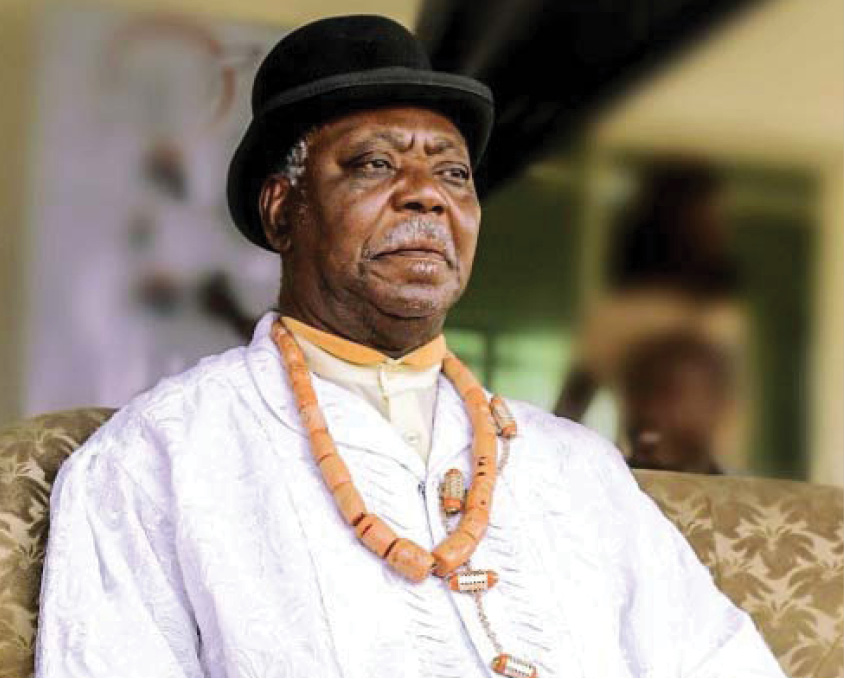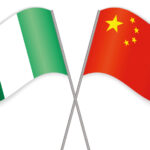His Royal Majesty, King Alfred Papapreye Diete-Spiff, is the pioneer Military Governor of Rivers State, now Rivers and Bayelsa states, from 1967 to 1975.
He is presently the Amayanabo of Twon-Brass, and Chairman, Bayelsa State Traditional Rulers Council.
In this interview with Daily Trust, the former naval officer relives his experiences running the then newly created state during the Nigerian Civil War, at the age of 25, his achievements in office, evolvements in the traditional institution and Nigeria’s progress at 60.
Your Royal Majesty, what was it like running the affairs of Rivers during the civil war and at that young age?
It started in 1950 and I was about eight-years-old when my father said I should become a marine officer, and I was very thrilled about it because I had been working in the ships, where we lived at the side of the Cameroon Mountain.
I took a keen interest in geography, physics, mathematics and applied sciences.
- Nigeria@60: ‘Why Nigeria still grappling with religious, economic challenges’
- Nigeria’s independence: Six images from six decades
I even dropped literature and concentrated on the sciences and came out with distinction in all those subjects.
So, when I got to Lagos in 1961, I tried to join the Navy, but I did not succeed until 1962 and we were sent abroad for training at the Royal Naval College and commissioned as an officer in 1965.
I joined the Navy and in 1966, I found myself at the Supreme Headquarters.
I was not a member of the Supreme Military Council but I was one of the officers working there, and by 1967, when General Yakubu Gowon took over, he made me military governor.
There were 12 states in Nigeria then and I was the pioneer governor of Rivers State.
There was a rebellion and declaration of independence by General Ojukwu, and that delayed my going to my headquarters in Port Harcourt.
After setting up our government and advisory body, I could not get to Port Harcourt until 1968, after it was liberated.
We had to use first degree holders as acting permanent secretaries.
We had no seasoned staff, so all the problem was on our shoulders.
I was lucky to have a very seasoned Permanent Secretary, Daniel Kalio, who had been in the West, released to me by General Adebanjo, who was the governor of Western Nigeria.
The military commanders with other officers were prosecuting the war. General Olusegun Obasanjo was there as GOC after Adekunle, and after him came General Danjuma and other commanders including our beloved President, General Muhammadu Buhari.
He was in Port Harcourt with us under the 3 Marine Commando.
We also set up an abandoned property authority to take care of all the houses that were abandoned.
We were actually doing some groundwork in Lagos from the time I became governor in 1967 and had all the working papers about setting up of the ministries before we arrived at Port Harcourt in 1968.
As soon as we arrived, we created seven ministries and appointed commissioners by December 1968, but the war was still on, we were restricted mainly to Port Harcourt until 1970 when the war ended.
We increased the number of ministries to 14 and had more commissioners appointed.
We set up corporations such as transport, housing, hotel and tourism and established a College of Science and Technology, which later metamorphosed into the University of Science and Technology.
We also had to protect civilians from the excesses of the military, which were prevalent during war time.
By 1973, we were able to settle down and I started playing golf.
We built houses in all the local government areas and also established divisional officers to take care of the divisions.
We carried out certain reforms and increased the number of divisions from five to 18 divisions, and we brought in Yenagoa and Odual Local Government, Brass and Nembe and the rest just to bring administration close to the people.
We built hospitals and schools in every local government.
We started building roads, but our prime concern was to build an East-West road, starting from Nkana waterside across Port Harcourt all the way to Ahoada to Yenagoa to Kaiama and built the bridge to link with the old Bendel State.
In 1975, the coup struck and we were shown the way out on 31 July 1975. I got retired as a Commander in the Nigerian Navy.
That was how it all ended, but I left Rivers State happy and contented that I had done my best.
Your administration conceived the idea of East-West road, how do you feel that the road is still battling for completion?
Well, when it started, it was a single lane, now it has been dualised, and the dualisation should have been completed by now.
Records show that Rivers State under you was rated as number 3 among Nigeria’s 12 states then in terms of development.
What was the secret?
We had our master plan while we were waiting for the state to be liberated during the civil war.
As soon as we came in, we went down to work.
So, we trained our own to catch up with the older states.
The northern states had their problems, but the landmass was so vast.
Your government’s educational policies were seen as liberal, how has that contributed to educational development in Rivers and Bayelsa states of today?
We established a scholarship scheme, and we discovered that some of the courses, which were relevant for our state development called for more expenditure, so that we could train our personnel more than bursary and standard scholarships.
We had to establish a special scholarship scheme and we were able to train enough pilots, navigators and many of them came back and excelled in their fields.
One of them even became the government inspector under the federal government.
So, I must say that Rivers has contributed enormously.
How has the traditional institution faired in the last 60 years?
As governor, I set up a committee, and three professors were brought in to study the traditional institution and come up with recommendations. Prof. Tamuno, Prof. Alagoa and other persons were working on that but I did not get the report before I left.
But the traditional institution has been the mainstay of our people, from the colonial days, from the Akassa war in 1896 when King Koko sacked the company offices in Akassa, and then the reprisal when they came to Nembe to bombard and take over, the traditional institution has always been there.
Although we got evolved by the Eastern Nigeria traditional chiefs and laws, which did not allow the riverine groups, the federal government in the 1999 Constitution removed the clause on traditional rulers and since then, traditional rulers do not exist in the constitution, which is most unfortunate.
Considering the pivotal role the traditional institution plays in the sustenance of peace in the different societies, what is the way forward to ensure they are accorded due respect?
The 1999 Constitution has been amended either by laws or judgements, so I don’t see how difficult it is to adhere to administrative reforms and the confab that we had in 2004 and 2014 that recommended that these things should be done.
I call on the government to address that issue, it’s very pertinent.
We have a saying at home, ‘Kalaye Opuye, Opuye Kalaye’ meaning little things are great things and great things can also be little things, little things go a long way to make things happen, traditional rulers should be included in the constitution even if it’s a two-line sentence.
With your strides when you were governor, what will be your advice to Nigerian leaders of today?
You see, a lot of people brag about their successes in life, I cannot afford that.
When we came into office, the population of Nigeria was 63 million. The population is now 200 million.
You can see that the present leaders have so many more miles to cover.
You are now dealing with a more sophisticated population and there is a lot of difference between 63 million and 200 million.
The population has increased by over three times.
Obviously, the prediction that Nigeria would be the third largest, most populated nation in the world by the year 2050 will come to pass.
Nigeria at 60, have we made any headway?
Yes, we have achieved a lot.
Even European countries are encouraging us to come and salt away our stolen money and they use it to balance equation on their deficits, so, God has blessed this country but we are not harnessing our potentials, everybody is running after petrol money.

 Join Daily Trust WhatsApp Community For Quick Access To News and Happenings Around You.
Join Daily Trust WhatsApp Community For Quick Access To News and Happenings Around You.


